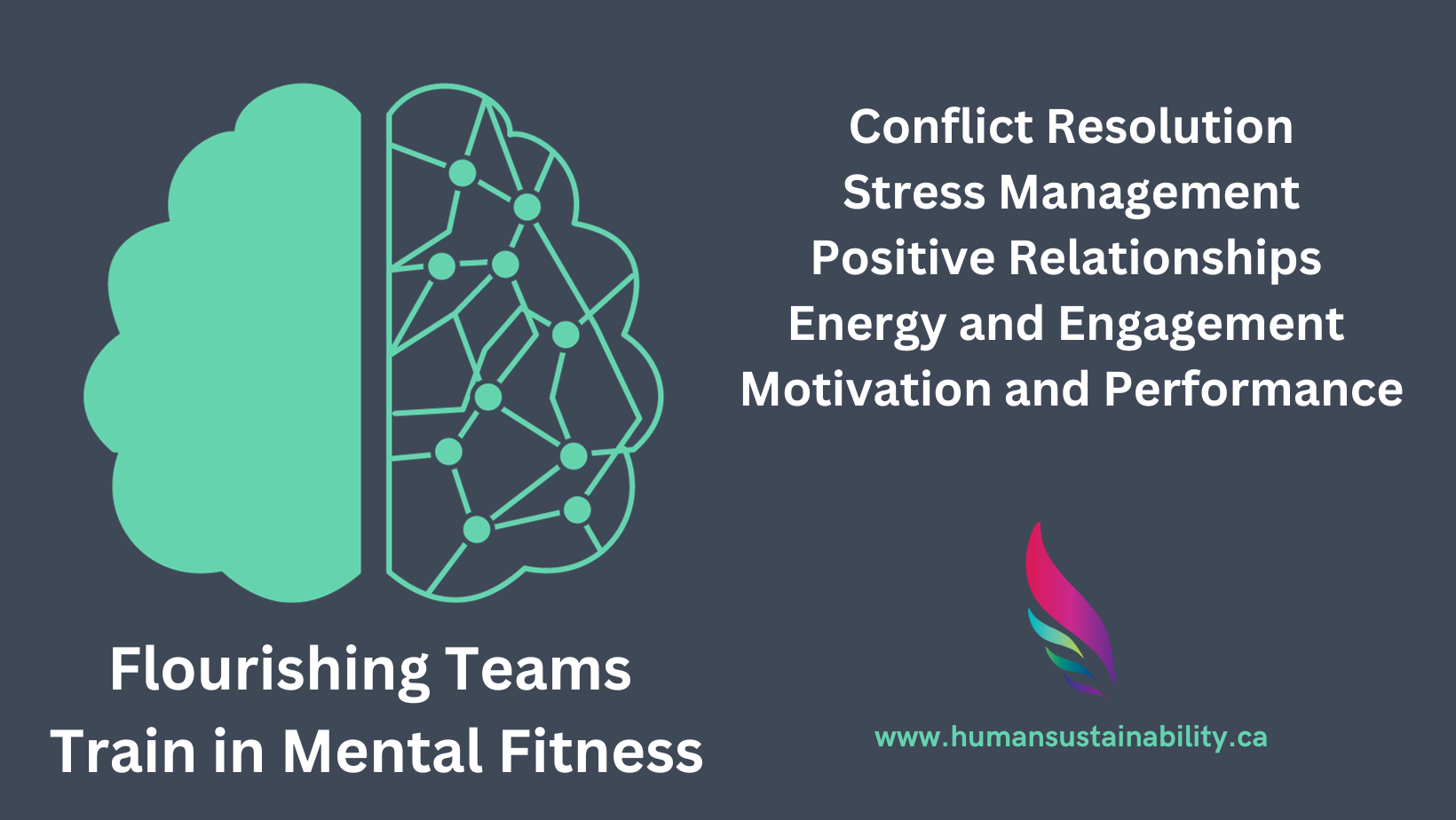
Imagine a world where you could maintain your composure, stay clear-headed, and radiate positivity, even when faced with life’s most challenging moments. In this world, you would not only achieve success and peace of mind but also foster healthy relationships while effortlessly navigating conflicts. This is the transformative power of mental fitness, and it holds the key to your personal and professional growth as well as that of your leaders. In this article, we will explore the concept of mental fitness, its role in conflict resolution, and how human resources professionals can integrate it into their leadership development programs.
Understanding Mental Fitness
Mental fitness is the art of cultivating a resilient and adaptable mindset that empowers you to overcome self-sabotaging patterns of thinking. These patterns are automated responses stored in your subconscious mind, dictating how you perceive, feel, and react to various situations. They are responsible for stress, anxiety, self-doubt, frustration, restlessness, and unhappiness, hindering your performance, wellbeing, and relationships.
Common Sabotaging Patterns of Thinking
Criticism: Constantly criticizing yourself, others and circumstances.
Victimization: Believing you are always the victim in any situation.
Pleasing: Overextending yourself to please others.
Overthinking: Getting trapped in endless thought loops.
Worry: Excessive concern about future outcomes.
Controlling: The need to micromanage everything.
Avoidance: Dodging confrontation or difficult situations.
Perfectionism: Demanding perfection from yourself and others.
Hyper-Achievement: Never feeling satisfied with your accomplishments.
Restlessness: Constantly seeking external stimulation.
Anatomy of Conflict and the Gifts Within
A conflict typically involves two parties with differing positions, each passionately advocating for their perspective. Resolution can be achieved through compromise or, in some cases, neither party gets what they initially wanted. To navigate conflicts successfully, it’s crucial to engage our brain’s inherent powers.
The gifts of conflict can be uncovered by first understanding that conflict is a natural part of any relationship, whether at work or in our personal life. However, when managed from a place of mental resilience, it turns into a gift that helps deepen trust and understanding between parties involved. To unlock the true potential of conflict, it’s essential to recognize and address the sabotaging thoughts that contribute to it and engage from a place of calm and focused wisdom.
Engaging Your Brain Powers for Conflict Resolution
Recognize mental interference: Expose and remove the interference of sabotaging thoughts in each person’s position. These are the negative thought patterns that fuel conflict.
Explore and navigate with curiosity: Delve deeper to uncover the underlying aspirations and needs behind each person’s position. Ask “why” to access deeper motivations and identify any fears influencing each person’s stance.
Empathizing as a superpower: Put yourself in the shoes of the other party and understand their perspective, along with the fears or concerns that led to their position.
Use creativity to innovate: Work collaboratively to discover a new position that aligns with the deeper aspirations and needs of both parties. Seek a new perspective that satisfies the underlying aspirations of both sides, moving beyond the initial positions.
Activate your inner wisdom: Determine actionable steps and make commitments to move forward based on the newly found resolution.
Integrating Mental Fitness into Leadership Development Programs
Human resources professionals play a pivotal role in fostering a mentally fit workplace. Incorporating mental fitness coaching into leadership development programs can lead to more effective conflict resolution, improved team dynamics, and enhanced employee wellbeing.
Awareness: Start by raising awareness among leaders and team members about the concept of mental fitness and its importance in conflict resolution.
Training: Offer mental fitness coaching and training sessions as part of leadership development programs. Equip leaders with the tools and techniques to identify and address sabotaging thought patterns in themselves and their teams.
Practice: Encourage regular practice of mental fitness exercises within the workplace. Create a culture that values self-awareness, empathy, and collaborative problem-solving.
Support: Provide ongoing support and resources for individuals and teams to continue developing their mental fitness. Offer access to coaches or mentors who can guide them on their journey.
Incorporating mental fitness into conflict resolution not only empowers individuals to overcome self-sabotaging thought patterns but also fosters healthier and more productive relationships. As a human resources professional, you have the opportunity to lead the way in promoting mental fitness within your organization. By shifting the mindset and embracing mental fitness, you can create a workplace where conflicts become opportunities for growth, trust, and understanding. So, take the first step today and embark on a journey towards a mentally fit, conflict-resilient future.
Presented by

Archives
Categories
- Attraction and Recruitment
- Benefits
- Celebrating Success and Recognition
- Change Management
- Coaching and Conflict Resolution
- Culture
- Diversity, Equity and Inclusion
- Emotional Intelligence
- Employee Engagement
- Employee Performance
- Labour Disruption
- Mentoring
- OMHRA activities
- OMHRA Events
- Psychological health and safety of the HR professional
- Recruitment
- Recruitment and Retention
- Retention
- Uncategorized
- Unique ideas for recruiting in a tight job market
- Wellness
Recent Posts
- How Leadership Development Coaching Provides Better Outcomes
- Better Leadership: Focus on a Coach Approach
- Creating a Psychologically Safe Workplace
- Group Health Insurance – The Impact of Preferred Pharmacy Networks on Employees’ Mental Health
- Provide Real Support For Your Mid-Career Team’s Psychological Resilience
